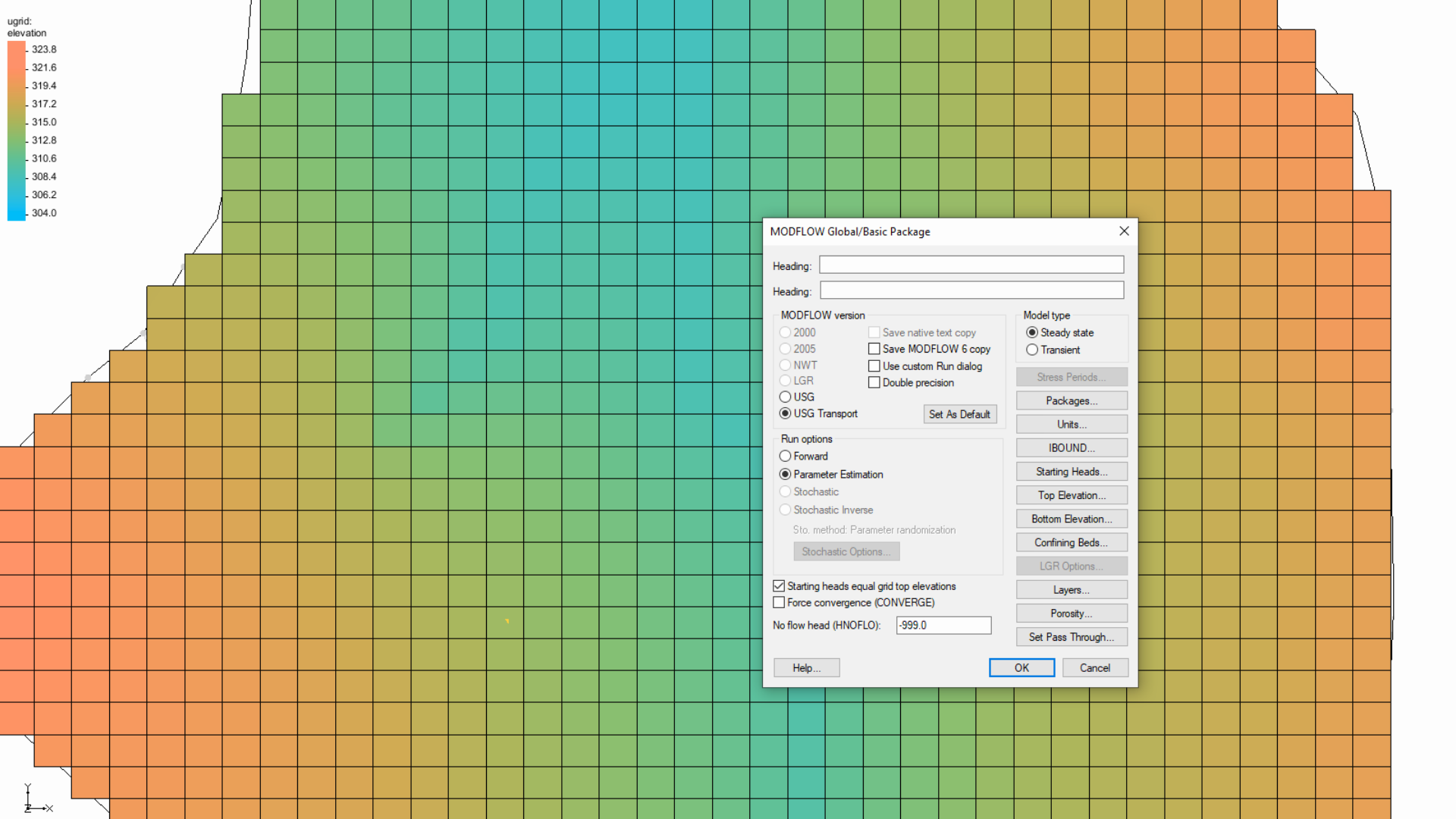We use cookies to make your experience better. To comply with the new e-Privacy directive, we need to ask for your consent to set the cookies. Learn more.
Choosing the Right MODFLOW Version in GMS
When building a groundwater model using MODFLOW in the Groundwater Modeling System (GMS), one of the first and most critical decisions is selecting the appropriate MODFLOW version. With multiple versions available—each tailored to specific modeling scenarios—it’s essential to understand their capabilities to ensure your model is both efficient and accurate.
Each version offers different strengths in terms of solver technology, grid flexibility, and process integration. Whether you’re working on a straightforward groundwater flow model or tackling a complex system with transport dynamics and irregular boundaries, selecting the right MODFLOW version within GMS can significantly influence your modeling outcomes and workflow efficiency.
What is MODFLOW?
MODFLOW is a modular, finite-difference flow model developed by the US Geological Survey (USGS). Widely regarded as the industry standard for simulating groundwater flow, there are several MODFLOW versions that have been developed, each introducing features to better handle increasingly complex hydrogeologic conditions.
MODFLOW Versions Supported in GMS
Below is an overview of the MODFLOW versions available in GMS, as well as guidance on when to use each:
MODFLOW 2005
A stable, widely used version ideal for standard confined/unconfined flow models. Supports many packages and boundary conditions but may struggle with nonlinear issues like dry cells.
MODFLOW-NWT (Newton Solver)
Uses a Newton-Raphson solver for better handling of unconfined conditions, dry cells, and steep gradients. Best for nonlinear or transient flow in unconfined aquifers.
MODFLOW-USG (Unstructured Grids)
Supports unstructured grids, enabling complex terrain and boundary modeling. Ideal for irregular geometries and local grid refinement.
MODFLOW-USG Transport
Adds solute or heat transport to MODFLOW-USG using the Groundwater Transport (GWT) package. Best for contaminant or thermal modeling in unstructured grids.
MODFLOW 6
The latest, most flexible version. Supports modular, multi-domain, and coupled process modeling (e.g., flow, transport, surface water). Great for complex or future-proof projects.
Older Models
-
MODFLOW-88: The original public release; foundational but obsolete (must be imported)
-
MODFLOW-96: Improved stability and boundary options; a transitional version (must be imported)
-
MODFLOW-2000: Introduced modular design and calibration tools; still used for legacy models
Other Versions Supported in GMS
Depending on your installation and licensing, GMS may also support additional MODFLOW versions such as:
-
MODFLOW-LGR (Local Grid Refinement): For embedding finer grids in coarse-grid models
-
MODFLOW-CFP (Conduit Flow Process): For modeling karst or pipe-like features in aquifers
-
MODFLOW-SURFACT: A proprietary extension for variably saturated flow (requires separate license)
How to Choose the Right Version
|
Modeling Need |
Recommended Version |
|
Reliable, traditional model |
MODFLOW 2005 |
|
Unconfined flow or dry cells |
MODFLOW-NWT |
|
Irregular grids or steep gradients |
|
|
Coupled transport on unstructured grids |
MODFLOW-USG Transport |
|
Next-generation, integrated modeling |
MODFLOW 6 |
How to Change the MODFLOW Version in GMS
Changing the MODFLOW version in GMS can be done through the MODFLOW Global Options dialog:
-
Open your project in GMS
-
Navigate to MODFLOW | Global Options… to open the MODFLOW Global/Basic Package dialog
-
In the MODFLOW version section, choose the desired MODFLOW version
-
GMS will prompt you to confirm the switch and may adjust or disable incompatible packages

Note: Switching to versions like MODFLOW 6 or MODFLOW-USG may require grid or solver changes that aren't backward compatible. Reverting to MODFLOW 2005 or MODFLOW-NWT often means rebuilding parts of the model.
Using MODFLOW in Your Models
Selecting the right MODFLOW version is foundational to building a successful groundwater model in GMS. Consider your project’s scale, complexity, boundary conditions, and long-term goals when choosing a version. When in doubt, MODFLOW 6 offers the most future-proof flexibility, while MODFLOW 2005 remains a trusted version for standard applications.
Download GMS today to find out which MODFLOW version works for you!


